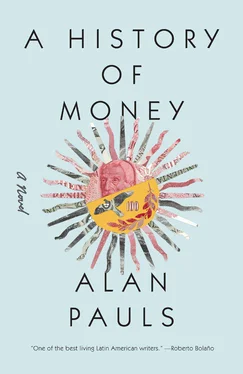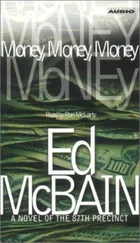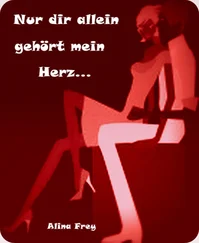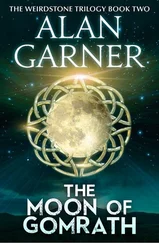Alan Pauls
A History of Money
I assure you I will be totally normal again as soon as the money gets here.
— Franziska zu Reventlow
He hasn’t yet turned fifteen when he sees his first dead person in the flesh. He’s somewhat astonished that this man, a close family friend of his mother’s husband, is as disagreeable to him now, shrunken by the too-narrow walls of his coffin, as when he was alive. He sees him in his suit, sees that face rejuvenated by the funeral preparations, made up, the skin yellowish and gleaming like wax, only flawless, and he feels the same rabid antipathy that comes over him every time their paths cross. But then it’s always been like this, since the day he first met him, eight years earlier, one summer in Mar del Plata, a little before lunch.
There’s no hint of a breeze, the cicadas are launching another deafening offensive. Fleeing the heat, the heat and the boredom, he wanders idly around the big, ramshackle house built at the beginning of the twentieth century where he never manages to find his place, despite the smiles the owners greet him with almost before he’s set foot in it, the private room they assign to him on the first floor, and the insistence with which his mother assures him that, even though he’s new there, he has just as much right to the house and to everything that’s in it — including the garage full of bikes, surfboards, and polystyrene bodyboards, and also the garden with its linden trees, gazebo, swing seat, and flower beds full of hydrangeas that the sun scorches and discolors until the petals look as though they’re made of paper — as everyone else, and by everyone else she means the still vague but inexplicably expanding legion that he, with a bewilderment that years of hearing the expression have not dissipated, hears called his stepfamily, a whole tribe of step-cousins, step-aunts, and step-grandmothers that have sprung up from one day to the next like warts, often without giving him time for the basics, like remembering their names, for example, and associating them with the corresponding faces. The agony he feels forced to suffer because he doesn’t belong: every step he takes is wrong, every decision a mistake. To live is to regret.
At some point in his drifting he ends up on the ground floor and sees him, catches him, in fact — the dead man, of course, who else? — sneaking around in the dining room as though on tiptoe, acting suspiciously. He lacks the disturbing agility of a thief. If there’s one thing he doesn’t present, with his strawberry-blond hair, almost feminine air, and skin that’s always flecked with red marks, it’s a threat. He moves lightly, with the delicacy of a mime or a ballerina, taking a few silent leaps that are as inoffensive as the mission that’s brought him to the dining room before the bell has officially announced lunchtime: to get an advantage on the rest of the family in plundering, one by one, with the tips of his manicured, methodical fingers, the little dishes on which the crostini that he decided to buy personally that morning, a brand with a vaguely foreign name whose goods, it seems, he has been praising for a week without anyone paying any attention, have just been served.
He trusted, as everybody does, that death would cleanse that old unease. That much at least, if it didn’t manage to wipe it out entirely. And so he approaches the coffin, the only thing, apart from the dead man’s wife — whom he also hasn’t seen in a long while — that he’s drawn to in this suffocating apartment his mother brought him to without saying a word as soon as he got home from school. He advances with his chin pressed against his chest, with the same grave, engrossed air that casts its shadow with rare unanimity over the adults’ faces, which he’s able to copy perfectly in less than ten minutes, just by glancing at it, further emboldened by the formality of the school uniform his mother forced him to keep on, the only thing his wardrobe offered to match the solemnity of the occasion. But when he arrives at the casket, hoping that seeing the dead man live and in person — as he’s sometimes joked about with those schoolmates who share his inexperience in the matter of wakes — will banish his former hostility to the cellar where his childhood intolerances are withering away, the voices around him merge into a confused murmur, the ambient sound disappears, and he discovers, to his incredulity, that the only thing he can hear, and once again he hears the whole thing, preserved in a state of total purity, is the intolerable crackling of crostini in the dead man’s mouth. In fact, it’s two alternating sounds: the clear but flat crunch of the crostini as they’re ground up by the teeth, muffled by the propriety of an educated mouth that opens itself as little as possible while it chews, and a sharp, regular smacking, like tiny lashes from a whip that resound at the moment of pulverization, when the lips delight in prolonging the pleasure of tasting for a few seconds more. But no: they’re not in the air or in his head. They’re not a hallucination or a memory. They’re there, ringing right inside the dead man’s mouth.
How many more times does he meet him over the course of the following years? Ten? Thirty times? And still nothing stays with him as much as that repulsive crackling. He sees the dead man almost every summer in Mar del Plata, and in a great variety of situations: in his swimsuit, for example, with his very white, mole-speckled skin scorched by the sun, walking toward the sea with his feet spread out in a V like a duck, or showing off his salmon-colored shirts in an Italian convertible in which he’s said to have tried his luck once or twice at the racetrack, or taking a beating at golf and getting distracted — his little pencil barely acknowledging the seven ridiculous swings he just had to use on a par-four — by the way he says a seam on the glove he ends up relinquishing tickles his wrist, by the slightly blunt point of the tee he puts between his teeth or the hunger he began to feel just after ten o’clock in the morning, trivial matters that he discusses loudly as if they were episodes in an ominous drama, sometimes over the course of entire holes, with the sole aim of putting his opponents off their game and so perhaps making up for the unfortunate numbers on his card. He sees him in Buenos Aires, too, in his own house, as a guest at some family birthday wandering around with the slightly insolent superiority of those family friends who claim a deeper intimacy than relatives themselves, and signing checks in a café on Calle Florida, one of the huge, old-fashioned salons with lavishly upholstered seats and dourly professional waiters where, under the pretext of familiarizing him with a type of adult life that will always be strange to him, his mother’s husband often has lunch and closes deals with his colleagues. He sees him one sunny day on a farm outside the city, wearing white pants and riding boots, holding a long glass containing a liquid the color of cherries that he drinks in short sips, almost sniffing it, as if it were very hot, while a very thin servant in a cap stands to one side, waiting uncomfortably for something that never happens.
But what has remained with him ever since is not the high-pitched tone of his voice, nor his fragile, constantly raw temper, nor the air of self-importance with which he takes a glass of wine by the stem and swirls it on the armrest of his chair. It’s not his sunglasses, not the pale cotton sweaters he ties around his neck, not his loafers with buckles or the variety of tense impatience that characterizes his relationships with other people and with the world, two things or categories of things whose existence he accepts only through clenched teeth, as though they existed solely to waste his time, especially any social inferiors who happen to get in his way, farmhands, caddies, chauffeurs, waiters, and above all the select army of maids who patrol the house in Mar del Plata at all hours, and who every day, during lunch and dinner, serve up on gleaming little stainless-steel plates the crostini that he ends up instituting after lauding them for a whole summer, which will accompany every meal in the house from then on, having dethroned the water biscuits. Ever since that summer lunchtime in Mar del Plata, the thing that has immediately identified the dead man, at least for him, as surely as a scar and so magically that he doesn’t even need to be making it any longer for him to feel it filling his ears like a poison, is the sound his mouth makes when he chews those fucking crostini.
Читать дальше












